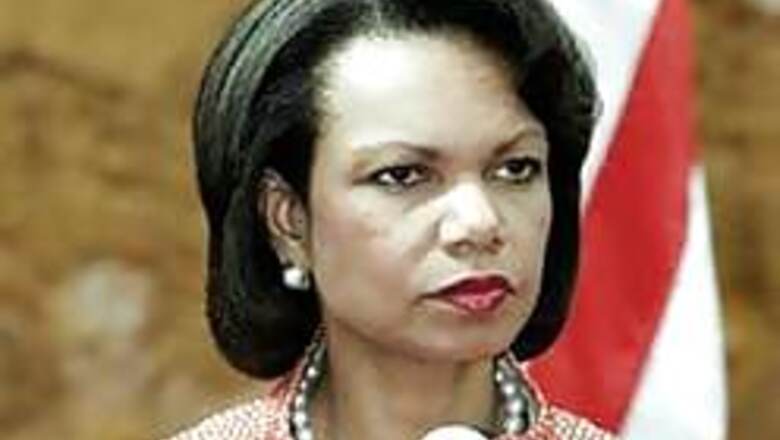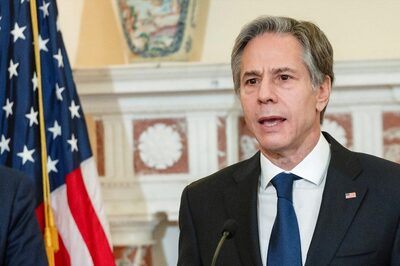
views
Washington: The United States, in a major policy shift toward Iran, said on Wednesday it would join European governments in talks with Tehran if it suspended its nuclear enrichment program.
President George W. Bush said the United States was taking a 'leadership position' to resolve the Iran nuclear dispute diplomatically, but Secretary of State, Condoleezza Rice stressed that the military option was still on the table.
"The president is not going to take any of his options off the table, temporarily or otherwise," Rice told a news conference.
Rice said the talks offer was part of a package of incentives and sanctions whose "essential elements" have been agreed with Britain, France and Germany and will be discussed further on Thursday in Vienna.
The resumption of diplomatic ties with Iran was not under consideration and Iran would incur great costs if it continued to pursue nuclear weapons, she said.
Iranian officials had no immediate comment on the U.S. offer but European allies France and Britain welcomed it.
"The U.S. offer will give added weight to the proposals which foreign ministers will be discussing in Vienna tomorrow," British Foreign Minister Margaret Beckett said in a statement.
French Foreign Minister Philippe Douste-Blazy urged the Iranian authorities to respond in a 'constructive manner' to European proposals.
Rice also said she hoped the offer would create a climate of action and get Iran to suspend what Washington and its allies consider its nuclear weapons program.
Oil prices fall
It's time to know whether Iran is serious about negotiation or not," said Rice.
Tehran says it is willing to negotiate on the number of uranium-enriching centrifuges it uses for research, but has stressed it would not stop running the devices entirely as the U.N. Security Council has called for.
Crude oil futures fell about $1.5 a barrel in New York trading following the Rice comments on Iran, the world's fourth-largest oil producer.
PAGE_BREAK
Escalating tensions over Iran's nuclear program and concerns that Iran may choose to retaliate by limiting crude supplies to the global market have been one of the key drivers of lofty oil prices.
The United States has often said it was open to talks with Iran, but the Bush administration has repeatedly dismissed growing calls from members of the U.S. Congress, former officials and prominent analysts for dialogue.
The United States and the so-called EU3 -- France, Germany and Britain -- have been working with Russia and China on a "carrot and stick" package, designed to persuade Iran to abandon activities that Tehran insists are only intended for peaceful energy purposes.
U.S. officials, briefing reporters on condition of anonymity, said Russia and China generally support the package but there were still some details to negotiate during talks in Vienna on Thursday.
Russia and China
The United States, aiming to win Russian support, has accepted language in a proposed U.N. Security Council resolution that would rule out the immediate threat of military action against Tehran, U.S. and European officials said.
The compromise involves not invoking the whole Chapter 7 of the U.N. Charter as Washington had been demanding, but citing specific articles that leave out the one referring to use of force, the officials said.
Iran has rejected in advance the planned overture from Britain, France, China, the United States, Russia and Germany as akin to offering 'candies for gold'.
The United States has not had formal diplomatic relations with Iran since after the 1979 Islamic revolution when fundamentalist students held 52 Americans hostage for 444 days.
Since then, there have been intermittent attempts at communications, most of them short-lived or inconsequential.

















Comments
0 comment